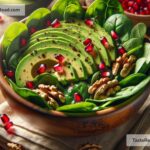The Surprising Link Between Squash and Beta-Carotene
When we think about squash, we often picture a delicious side dish served during holidays or a hearty bowl of soup perfect for chilly nights. But did you know that squash is not only tasty but also packed with nutrients that can do wonders for your health? One of the superstar nutrients in squash is beta-carotene, and its benefits might surprise you!
Let’s dive into the connection between squash and beta-carotene, explaining what this nutrient is, why it’s important, and how enjoying squash can improve your overall health.
What is Beta-Carotene?
Beta-carotene is a pigment found in many fruits and vegetables, especially those that are orange, red, or yellow in color. It belongs to a family of nutrients called carotenoids, which are responsible for giving certain foods their vibrant hues. Beta-carotene acts as an antioxidant, which means it helps protect your body’s cells from damage caused by harmful molecules called free radicals.
But here’s the best part: when your body takes in beta-carotene, it converts it into vitamin A, an essential nutrient that supports your eyes, skin, immune system, and more. In short, beta-carotene plays a big role in keeping your body healthy and strong.
How Does Squash Fit Into the Picture?
Squash is one of nature’s best sources of beta-carotene, especially varieties like butternut squash, acorn squash, and pumpkin. These types of squash are rich in nutrients and loaded with the orange-colored pigment that signals high levels of beta-carotene.
For instance, just one cup of cooked butternut squash contains more than 300% of your daily recommended intake of vitamin A, thanks to its beta-carotene content. That’s a big nutritional punch packed into a relatively simple food!
The vibrant orange color of squash is a good indicator of its beta-carotene levels. So, the next time you’re grocery shopping, consider picking up a squash with bright, deep colors—those are the ones bursting with nutrients.
Why Is Beta-Carotene Important?
What makes beta-carotene so special? Here are some of its key benefits:
-
Eye Health: Vitamin A, formed from beta-carotene, is crucial for maintaining good vision. It helps your eyes adjust to low light and reduces the risk of developing eye conditions like night blindness and age-related macular degeneration.
-
Skin Health: Beta-carotene helps keep your skin healthy and radiant. It protects the skin from free radical damage, which can lead to wrinkles and aging. Plus, research suggests that beta-carotene may even offer some natural protection against harmful UV rays from the sun.
-
Immune Support: Vitamin A plays a major role in supporting your immune system, helping your body fight off infections and illnesses more effectively.
-
Antioxidant Power: As an antioxidant, beta-carotene reduces oxidative stress in your body, which is linked to diseases like heart disease, cancer, and diabetes. It essentially acts as a shield for your cells, keeping them healthy and functional.
-
Overall Health: Some studies suggest that diets rich in beta-carotene may contribute to a longer, healthier life by lowering the risk of chronic disease.
Delicious Ways to Enjoy Squash
Luckily, incorporating squash into your diet is easy and delicious! Here are some simple ideas to get you started:
-
Roasted Squash: Slice butternut or acorn squash, drizzle it with olive oil, sprinkle on some spices (like cinnamon or paprika), and roast it in the oven for a flavorful side dish.
-
Squash Soup: Blend cooked squash with broth, garlic, onions, and a splash of cream to make a rich and satisfying soup.
-
Stuffed Squash: Hollow out an acorn squash and fill it with grains like quinoa, vegetables, and your favorite protein for a wholesome, colorful meal.
-
Squash Puree: Mash cooked squash into a smooth puree and serve it as a side dish, or use it as a healthy base for other recipes like pasta sauces.
-
Pumpkin Treats: Don’t forget about pumpkin! You can use it to make everything from savory dishes to desserts like pies, muffins, and breads.
Who Can Benefit From Beta-Carotene?
The great news is that everyone can benefit from beta-carotene, whether you’re young or old. It’s especially helpful for people who want to boost their nutrition, improve their vision, or support their skin and immune health. Vegetarians and vegans, in particular, should consider squash because it’s a plant-based powerhouse of vitamin A.
However, taking beta-carotene in supplement form is not always recommended for some individuals, like smokers, as excessive amounts may pose risks. The best way to get beta-carotene is through whole foods like squash, where it works synergistically with other nutrients.
Conclusion
Squash is more than just a seasonal favorite or a comforting recipe ingredient—it’s a nutritional goldmine. Its rich levels of beta-carotene make it a valuable addition to your diet, helping you improve your eye health, skin health, and immune function, all while providing powerful antioxidant benefits.
So, next time you’re at the grocery store or planning your weekly meals, consider adding squash to your cart. Whether roasted, blended into soup, or baked into a dessert, squash is a versatile, delicious choice that’s sure to improve your health in surprising ways. Give it a try and reap the benefits of this humble yet mighty vegetable!


